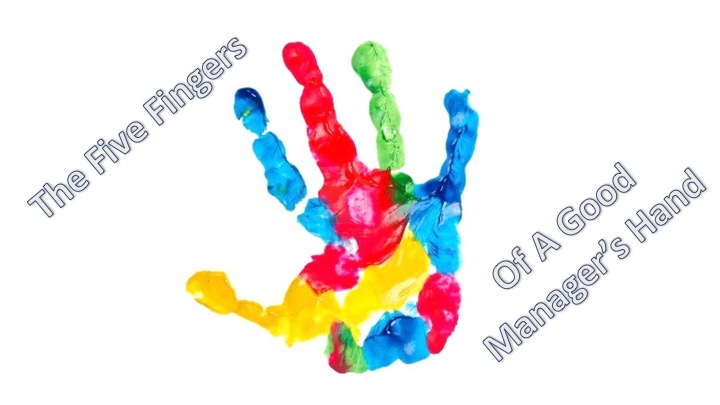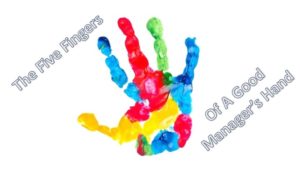Managing: Know When To Hold ’em, Know When To Show ’em…


Apologies in advance if that old Kenny Rodgers tune is now swirling in your head, albeit with the edit–if you are folding your hand then you need to read a different article! To be a great manager is truly very hard. By almost everyone’s evidence however, there’s plenty of lousy ones out there. Managing people is a skill but one that must be integrated into your true self otherwise you are sure to eventually join the ranks of the lousy.
What makes managing people so difficult is, well, people. Managing computer servers you need only consistent application of a few skills, managing people will be an uneven need of skills to apply. Too often being good at a job makes people defacto candidates to manage. That’s no guarantee at all. Likewise hospitals are plagued by brilliant doctors who are clueless managers. No one has to be a bad manager and no leader should subject his employees to being led by a bad one, not when it can be taught and learned.
I’ll put forth the five skills that when wielded by the right hand can be an iron fist or a supporting pat. Think about how many of these you, or your managers have had formal training in. You won’t find them listed in people’s resumes but if you want to evaluate the potential of a manager ask a question about each of these five critical skills. Here’s the fingers to a great manager’s hand:
1) Thumb – Communication
By far the most critical, you can’t wield a hammer without a thumb and you can’t lead people effectively without communication skills. Adding complexity, communication is as much about how we listen as how we tell. It involves nuance like tonality, timing, tension, sincerity and directness even when you may not or should not delve into every detail of something going on. By far the most common complaint of employees of their managers stems from shortcomings in communication. Regular memos and, “My door is always open,” is not a communication strategy. Quality communication ranges from detailing business plans, needs and objectives, setting clear goals, driving results to conversations of personal performance, professional development, everyday life needs and events. It is both about making a staff understand and feel they are heard.
2) Pointer – Measurement
An old ’60s comedy used to award the Fickle Finger of Fate Award, a simple pointing finger. That selecting, accusing or celebrating (“We’re #1!”) digit is direct and to the point. Measurement must be also. When evaluations are purely observation or subjective differences of interpretation abound. Measurement criteria, detailed in advance and meticulously captured and reported takes away much of the subjectivity. The poorest excuse a manager has is that something can’t be, or is too hard, to measure. As we learn in programs like Total Quality Management you can measure anything. Effort, attitude, pretty much any seeming intangible can be made tangible by measurement. Now that measurement finger needn’t and shouldn’t be wagged in constant accusation but balanced with pointing out recognition of good news from measurement, and then you can get to the waving it around while popping celebratory champagne.
3) Middle Man – Accountability
With due recognition that the middle finger is more often cast in disparagement so too is Accountability. It is a sometimes cruel specter of reflection to have to actually do what you say. For a manager it is a duel edged sword that must seek commitments from staff and hold them to what is agreed or directed to be done but just as important on the other side, a manager must be accountable to his team with what he says he will do or is asked to do by upper management. When the man or woman running the department is an example by making excuses for what doesn’t get done, rationalizes away every bad result or otherwise puts themselves above the responsibility for behaviors they seek to hold others too they are doomed to dissent. Accountability needn’t be viewed as end results, in fact it is far more productively discussed as commitments to behaviors and efforts. A manager must have faith that if the right things are done in earnest results will follow. Otherwise, the problem is not likely with the staff.
4) Ring Man – Empathy
I’m not sure who or why cultures chose the fourth finger to bear our rings of graduation, our promises of engagement or our commitments of marriage but that’s their prime place. (If you are a pinky ring guy you probably shouldn’t be a manager and if you’re a thumb ring’er well, you’re too hip for this gig anyway). As the key to a great marriage is an abundance of empathy so too is it critical for great management. Not to be confused with sympathy, empathy isn’t about feeling what others feel it is about understanding what others feel and being able to interpret their needs or challenges. A manager’s ability to see the differences in staff’s lives, even only professionally, means a requirement to personalize an approach to driving results. “I treat everyone the same!” That’s the boast of a lousy manager. Don’t treat everyone the same, some need kicks and some need strokes but that is based on what they need to perform not on what you choose to dole out.
5) Pinky – Motivation
While perhaps the least grand finger in the hand this is what separates us from the four fingered cartoon characters. Being a great motivator might seem a bigger part for a great leader but the reality is that for good managing we need to use the other “fingers” for driving most of what motivates people. Getting to people’s self motivation is by far more effective and efficient than coming up with the weekly speech or the threat maker or rah-rah cheerleader. Great communication, application of measurement and being accountable with empathy will be enough of a foundation that you’ll need but a pinky push with words and actions, whether carrots or sticks, to motivate a team to great performance and results.
Of course there are many other good traits in great managers like delegating effectively, patience, being positive, honesty and subject competence but those fingers are for the the other hand. Most of what we accomplish we do with a dominant hand, a dominant side of the brain so the five fingers detailed above can give you a great start to reflect on where you are, or where you need to be to become a great manager. So salute, pump your fist, learn what you need, master what you experience and you’ll join the few of whom the staff says, “My manager’s great!”
(c) 2017 MyEureka Solutions LLC. Follow Tom on Twitter @TomFoxTrainer or visit
https://www.linkedin.com/in/tom-fox-a28b703/detail/recent-activity/posts/
for articles and information on sales, managing and leadership.
